Education for Life: St. John's After Graduation
By Scott Hannan
‘Education for Life’ is the slogan on an old St. John’s College Graduate Institute brochure. Although this particular piece is aimed at educators, the truth of the statement resonates with all who attend St. John’s College. The education you receive here is one that each student carries into every learning experience for the rest of their lives. Indeed, many alums manage to continue discussion-based classes with them for years and years after they graduate. Official alumni seminars, organized by the Alumni Relations Department, are popular, as are independent alumni gatherings. By way of example, Rick DeNoble, who graduated from the Eastern Classics program in 2013, has been participating in online seminars with his classmates since 2015.
“There are 5 of us. We all graduated from the EC in 2013. After dispersal, there would be occasional email contacts that would always end with the truism that "sometime" we "ought" to do some kind of seminar. After one of these flurries, I decided to just make it happen. I picked a date and time, selected a text (Chinese Rhyme-Prose, edited by Burton Watson), and asked Matt to develop an opening question. Everyone showed up.”
Independent alumni study groups are popular, especially right after graduating. The intimacy, the challenge, and the joy of the St. John’s classroom is not easily left behind. Neither is it easily pursued, once classmates move away and become busy with other obligations. Mr. DeNoble’s group is spread across the country from Anchorage, to Phoenix, to Atlanta, San Francisco, and New York City. The key this group’s consistency appears to be their ability to communicate despite their distinct lives, and to stay organized.
“We have a spreadsheet where we track recommended works and keep a log of what we've had seminars on. Originally we would vote on the next work, but are currently running a "rotating, benevolent dictatorship", where each of us chooses a work and is responsible for the opening question as well. I schedule each meeting using Google calendar, which allows you not only to schedule, but to set reminders (I set them for 1 week, 1 day, and 1 hour to each seminar). We also use Google Hangouts for the actual seminars.”
The group has continued to read Eastern texts. They have re-read some of the program books, including The Lotus Sutra and Zhuangzi and others beyond the scope of the program such Liezi and Pancatantra and texts by Hakuin Ekaku and Linji Yixuan. “We've also tried to include material from other "EC" countries like Korea (Memoirs of Lady Hyegyeong, Seven Cloud Dream), and Tibet (Tantric Ethics),” says DeNoble, adding that some of the most intriguing texts have been Japanese Noh dramas.
“They're really unlike anything we read in the EC or really anything else either. The aesthetic quality is astounding, especially in their use of the "chorus", but they also seem to serve as a sort of socio-cultural re-enactment of shared memory, almost literally "re-creating" the community they arise from. Would love to spend more time with these!”
Currently, there’s no end in sight for Mr. DeNoble’s study group. While the group has met online for all these years, there’s always the desire to meet again face-to-face,“we hope someday to have an in-person "reunion" seminar. But who knows when or if that will happen.”

